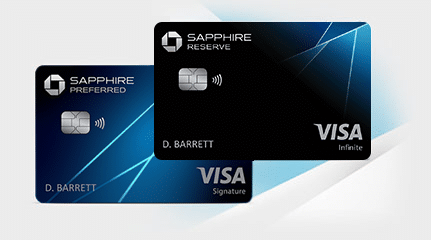Looking for a card for every occasion?
The journey toward financial freedom often starts with handling debt well. Many people in the United States struggle with large debts. This can slow down their financial progress and affect their life.
This article shares tips and ideas on various debt solutions. It’s meant to help readers take charge of their money again. By learning to manage debt, make a budget, and plan finances well, folks can reduce their debt. This opens a door to a stable financial future.
Anúncios

Chase Sapphire Preferred® Card

Anúncios
Understanding the Impact of Debt on Financial Health
Debt significantly affects our financial health and touches different parts of our lives. Poorly handled debt brings many challenges, like lower credit scores and more stress about money. Learning about debt’s negative effects can help people get their finances back on track.
Consequences of Mismanaged Debt
Poorly managing debt can have several bad results:
- Declining credit scores, which can limit access to loans and credit cards.
- Increased stress and anxiety, affecting overall well-being.
- Potential bankruptcy, which can have long-term repercussions on financial opportunities.
The Importance of Financial Literacy
Knowing about finance is key to handling debt wisely. By understanding money basics—like budgeting, saving, and investing—people can manage their money better. Improving one’s financial knowledge can lead to better credit scores and a stable financial future.

Developing a Comprehensive Financial Plan
A strong financial plan is like a map for reaching your money goals. It relies on clear financial targets to help make choices and set priorities. Starting this journey involves key steps for success.
Setting Clear Financial Goals
It’s important to set specific financial goals. They give you motivation and direction. Think about:
- Saving for emergencies
- Paying down debts
- Investing for future growth
Evaluating Current Financial Situation
Looking at your finances means carefully checking your income, expenses, and debts. This step helps you understand your financial health better. Things to examine include:
- Monthly income sources
- Fixed and variable expenses
- Total debt obligations
Adjusting Plans as Circumstances Change
Life can bring unexpected changes. It’s key to update your financial plans when things like job loss or surprise bills happen. Staying flexible lets you keep moving toward your goals, even when life gets tricky.
Effective Budgeting for Debt Reduction
Effective budgeting is key to reducing debt. By closely watching what you earn and spend, you can understand your finances better. This allows for smarter decisions. Managing your money well also shows chances to improve financially.
Tracking Income and Expenses
Keep a close eye on the money you make and spend. Use apps and digital tools to track everything. This helps figure out where your money goes. Then, you can make needed changes to focus on paying off debt.
Identifying Areas for Cost-Cutting
Finding ways to spend less is crucial for paying off debt. Look over your monthly bills to find what you don’t need. You might:
- Cancel subscriptions you’re not using
- Shop around for the best prices on must-haves
- Cook at home more instead of eating out
- Try public transport or share rides
By spotting these chances, you can tweak your budget. This means you can put more money toward getting rid of debt. This will help you achieve financial peace faster.
Debt Solutions: Choosing the Right Approach
Choosing the best way to handle debt is crucial for financial recovery. Many options exist to help with different financial challenges. It’s important to know the pros and cons of these debt solutions.
Credit Counseling Services Benefits
Credit counseling offers tailored advice for managing finances. Experts work with people to review their debts and make a plan that works. They also teach about budgeting and planning finances.
This support is private and can reduce stress from debt. It helps people tackle their financial issues in a practical way.
Exploring Debt Settlement Options
Debt settlement can lower the total money owed through negotiation. But, it might affect your credit score negatively. People need to think about the pros and cons based on their financial goals.
Working with a trusted debt settlement company can improve the outcome. This approach could offer financial relief.
The Role of Debt Consolidation Loans
Debt consolidation combines debts into one payment, usually with less interest. This step makes paying off debt simpler and can lower monthly expenses.
Before choosing this route, it’s wise to compare loan options. Making sure it fits your long-term goals is key. Managed well, it can lead to financial stability.
Strategies for Prioritizing Debt Payments
Managing debt means using smart strategies to decide which debts to pay first. People often choose either the avalanche method or the snowball method to help them. Knowing these strategies can guide them in addressing their financial duties. Getting lower interest rates from those you owe can also make a big difference in managing your debts.
Understanding the Avalanche and Snowball Methods
The avalanche method focuses on paying off debts with the highest interest rates first. By doing this, you save on interest over time, making it cheaper to get rid of your debts. However, the snowball method suggests you should start with the smallest debts. It helps you see progress quicker, boosting your will to pay off the rest. People choose between these based on what fits their financial life and personal choice.
Negotiating Lower Interest Rates with Creditors
Talking to your creditors to get lower interest rates is another key move for managing debts. If you have a good history of paying back, you might get to pay less interest. This can make your debt easier to handle, helping you on your path to being debt-free.
Building an Emergency Fund to Avoid Future Debt
Starting an emergency fund is key to stop future money problems, especially when paying off debt. It acts like a safety cushion, giving you quick cash without needing credit for surprise bills. This smart move lets you handle surprises without falling back into debt.
Importance of Saving During Debt Repayment
Saving while paying off debt boosts your financial strength and promotes good money habits. Having an emergency fund means you can handle sudden costs like doctor’s fees or urgent house fixes without messing up your debt pay off routine. This way, you feel secure and can keep up with your debt payments without trouble.
Starting Small with Savings Goals
Setting small, doable savings targets makes starting easier and feels more within reach. You can save a little bit each week or month, growing good saving habits bit by bit. Tracking your savings progress boosts your motivation and belief in yourself, helping you manage debt and stay financially steady.
Seeking Professional Financial Guidance
Getting help from a financial advisor is key if you’re battling debt. These experts have the knowledge to offer advice that fits your needs. They know how to tackle different money problems.
They aim to find plans that match your personal goals and situation.
The Value of Financial Advisors
Financial advisors are vital in guiding clients to smart money choices. They check your financial health and plan out how to fix debt issues. Their detailed plans and support help people take charge of their money again.
Finding Reputable Credit Counseling Services
When looking for good credit counseling, focus on non-profit or accredited places that follow ethical standards. These services help with budgeting and debt plans. Make sure you choose services that are open about their costs and have good reviews.
Long-Term Insights for Sustained Financial Freedom
To achieve lasting financial freedom, get educated on finance and use technology. Learning about budgeting, saving, managing debt, and investing is key. This knowledge helps you make smart choices for long-term success.
Embracing Financial Education
Learning continuously is essential for handling personal finance well. You can use books, online courses, and workshops to understand economic concepts. Those who focus on financial education can keep up with financial changes.
Utilizing Technology for Financial Tracking
Today, tech helps us manage our finances better. With budgeting apps and financial software, tracking finances becomes easier. These tools let you see your spending and savings. They help you adjust your budget on the go.
Conclusion
Getting free from debt is a key step to financial freedom. Realizing how debt affects you is important. It guides your choices and impacts your financial health.
By planning your finances well and using smart budgeting, you can take charge of your money. Plus, getting advice from experts helps. They offer solutions that fit your specific needs. Learning about finances helps you make smarter choices and keep up with changes.
Using modern tools makes tracking money and managing debt easier. Though reaching financial freedom has its ups and downs, it’s possible. By boosting your understanding of money and taking an active role in managing it, you can create a debt-free future.
FAQ
What are effective strategies for managing overwhelming debt?
How can mismanaged debt affect my financial health?
What role does financial literacy play in debt management?
Why is creating a budget important when trying to reduce debt?
What are some methods for prioritizing debt payments?
How can I build an emergency fund while repaying debt?
What should I look for when seeking financial advice?
How can technology assist in managing my finances?
What are the long-term benefits of financial education?
Conteúdo criado com auxílio de Inteligência Artificial


